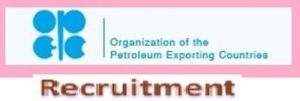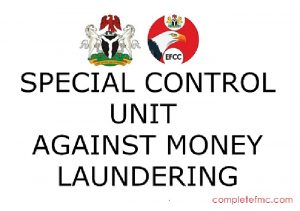A business plan for Starting a private school in Nigeria – Starting a private school in Nigeria can be a rewarding and challenging venture. Nigeria has a large population of children in need of quality education, and private schools are becoming increasingly popular as parents seek better educational opportunities for their children. However, starting a private school in Nigeria requires careful planning and consideration of a wide range of factors, including funding, regulations, curriculum, staffing, and marketing. In this business plan, we will outline the steps involved in starting a private school in Nigeria and provide guidance on how to create a successful and sustainable educational institution.
A private school in Nigeria:
Table of Contents
Private schools in Nigeria are educational institutions that are owned and run by private individuals or organizations, rather than by the government. These schools offer primary, secondary, and tertiary education and are often considered to provide a higher standard of education compared to public schools. A business plan for Starting a private school in Nigeria
Furthermore, Private schools in Nigeria are known for their focus on academic excellence, discipline, and the use of modern teaching methods and technologies. They typically have smaller class sizes, better-equipped facilities, and highly qualified teachers who are paid better salaries than their counterparts in public schools.
Some of the best private schools in Nigeria include:
- American International School of Lagos
- Grange School, Lagos
- British International School, Lagos
- Greensprings School, Lagos
- Lekki British International School, Lagos
- Corona Schools, Lagos
- Hillcrest School, Jos
- Loyola Jesuit College, Abuja
- Lead City University, Ibadan
- Babcock University, Ogun State
Private schools in Nigeria are typically more expensive than public schools, but parents often see the investment as worthwhile due to the high quality of education offered.
A business plan for Starting a private school in Nigeria
Why do parents prefer a private school in Nigeria?
As a matter of fact, there are several reasons why parents in Nigeria may prefer private schools over public schools. Some of these reasons include:
- Quality of Education: Many parents believe that private schools offer a higher quality of education than public schools. They believe that private schools have better facilities, better-trained teachers, and more individualized attention for their children.
- Class Size: Private schools in Nigeria often have smaller class sizes than public schools, which means that teachers can give more attention to each student. This can lead to better academic performance and improved social skills. A business plan for Starting a private school in Nigeria
- Discipline: Private schools in Nigeria are known for their strict disciplinary measures, which some parents believe can help their children stay focused and motivated to succeed academically.
- Religious or Cultural Affiliation: Some private schools in Nigeria are affiliated with specific religions or cultures. Parents who value these affiliations may choose private schools that align with their beliefs.
- Security: Many private schools in Nigeria have better security measures than public schools, which can give parents peace of mind knowing that their children are safe while they are at school.
Overall, while public schools in Nigeria are often more affordable, some parents believe that the benefits of private schools outweigh the costs.
A proposal for Starting a private school
In fact, starting a private school can be a challenging yet rewarding endeavor. Here are some steps to consider when putting together a proposal for starting a private school:
- Develop a mission statement: Define the core values and principles that will guide the school’s operations, culture, and academic programs. Consider the type of students you want to serve, the educational goals you want to achieve, and the unique approach that sets your school apart.
- Conduct market research: Analyze the local education landscape to identify the demand for private schools and the competition in the area. Gather data on the demographics of the student population, the academic performance of existing schools, and the prices and offerings of competing schools. A business plan for Starting a private school in Nigeria
- Create a business plan: Draft a comprehensive plan that outlines the financial and operational aspects of starting a private school. Consider the startup costs, operating expenses, funding sources, and revenue streams. Develop a strategy for marketing and enrollment, including creating a school website, promotional materials, and recruitment events.
- Hire staff: Assemble a team of qualified educators and administrators who share the school’s vision and mission. Determine the staffing needs based on the size and scope of the school and the academic programs offered.
A business plan for Starting a private school in Nigeria:
- Secure a location: Identify a suitable site for the school, considering factors such as accessibility, safety, and the availability of resources. Consider the cost of leasing or buying the property and the renovation and maintenance costs. A business plan for Starting a private school in Nigeria
- Obtain legal and regulatory approvals: Research and comply with the relevant laws, regulations, and licensing requirements for operating a private school. Consider consulting with legal and educational experts to ensure that your school meets all standards and requirements.
- Develop academic programs: Design a curriculum that aligns with the school’s mission and values, and meets the needs of the target student population. Consider partnering with educational organizations or experts to enhance the academic programs and extracurricular activities offered.
Starting a private school requires a significant investment of time, money, and resources, but can provide a rewarding opportunity to make a difference in the lives of students and the community.
A business plan for Starting a private school in Nigeria
Furthermore, starting a private school in Nigeria requires careful planning and execution. Here’s a basic business plan outline for starting a private school in Nigeria:
- Executive Summary:
- Briefly describe your school’s vision, mission, goals, and objectives.
- Provide an overview of the education sector in Nigeria and how your school will contribute to improving it.
- Include a summary of your financial projections and funding requirements.
- Market Analysis – A business plan for Starting a private school in Nigeria
- Conduct a thorough analysis of the market to determine the demand for private schools in your target location(s).
- Identify your target audience (students and parents) and understand their needs, preferences, and expectations.
- Analyze the competition and identify their strengths, weaknesses, opportunities, and threats (SWOT analysis).
- School Structure and Curriculum – A business plan for Starting a private school in Nigeria
- Determine the school structure (primary, secondary, or tertiary) and the curriculum you will offer.
- Decide on the type of school (day or boarding), the class sizes, and the admission criteria.
- Determine the staffing requirements, including the number and qualifications of teachers, administrative staff, and support staff.
A business plan for Starting a private school in Nigeria
- Financial Projections – A business plan for Starting a private school in Nigeria
- Estimate the startup costs, including land acquisition or rental, building construction, furniture and equipment, and initial staffing costs.
- Determine the recurring costs, including salaries, utilities, maintenance, and supplies.
- Forecast revenue projections, including tuition fees and other income streams (e.g., book sales, rentals, and event fees).
- Develop a budget and cash flow projection for the first three to five years.
- Marketing and Promotion
- Develop a marketing strategy to attract students and parents to your school.
- Create a brand identity, including a name, logo, and tagline.
- Use digital marketing channels (e.g., social media, search engine optimization, and email marketing) and traditional marketing channels (e.g., billboards, radio, and television) to reach your target audience.
- Develop partnerships and collaborations with local organizations and businesses to promote your school.
- Operations and Management – A business plan for Starting a private school in Nigeria
- Establish policies and procedures for admissions, discipline, health, safety, and security.
- Develop an academic calendar and timetable.
- Develop a student handbook and staff handbook.
- Implement an effective management and governance structure, including a board of directors and administrative staff.
A business plan for Starting a private school in Nigeria
- Conclusion
- Summarize your business plan, including the key objectives, strategies, and financial projections.
- Reiterate your commitment to delivering high-quality education and contributing to the development of the education sector in Nigeria.
- Invite investors and stakeholders to support your school’s vision and mission.
Furthermore, starting a private school in Nigeria is a challenging but rewarding venture. With careful planning, strategic execution, and effective management, your school can provide a world-class education to students and make a positive impact on society.
Related Posts: A business plan for Starting a private school in Nigeria
- A Simple bankable nursery school business plan
- A secondary school business plan:
- Sample primary school business plan in pdf
- This is a nursery and primary school business plan pdf
Explanations of certain Segments of the Plan:
So, for the private schools in Nigeria Market Analysis, we shall consider the Demographic trends in Nigeria. Competitive landscape and Target market. Market segmentation and Unique selling proposition
Market Analysis: A business plan for Starting a private school in Nigeria
Demographic Trends in Nigeria: Nigeria is the most populous country in Africa, with a population of over 200 million people. It is a young country, with over 60% of the population under the age of 25. The literacy rate in Nigeria is about 60%, with a significant gender gap. The government is making efforts to improve the education sector, but there is still a significant gap between the quality of education provided by public schools and private schools.
Competitive Landscape: The private school market in Nigeria is highly competitive, with a large number of players, ranging from small primary schools to large international schools. The competition is driven by the high demand for quality education, as public schools struggle to meet the educational needs of the growing population. Some of the established players in the market include Corona Schools, Greensprings Schools, and Chrisland Schools. These schools have been around for several years, have a good reputation, and offer quality education at a premium price.
Target Market: The target market for private schools in Nigeria is the middle and upper-class families who can afford to pay for quality education. The parents in this market segment are willing to pay a premium for schools that provide a better quality of education, as they believe it will give their children an edge in life. They are also interested in schools that offer a holistic education, including extracurricular activities and social skills development.
A business plan for Starting a private school in Nigeria
Market Segmentation: The private school market in Nigeria can be segmented based on the income level of the parents, the location of the school, and the level of education provided. The income level segmentation includes high-income families, middle-income families, and low-income families. The location segmentation includes urban and rural areas, with urban areas having a higher demand for quality education. The level of education segmentation includes primary, secondary, and tertiary education. A business plan for Starting a private school in Nigeria
Unique Selling Proposition: To be successful in the highly competitive private school market in Nigeria, a school needs a unique selling proposition that sets it apart from its competitors. Some of the unique selling propositions that schools can offer include a focus on technology, a specialized curriculum, a strong emphasis on extracurricular activities, a focus on character development, and a commitment to affordable quality education. By offering a unique selling proposition, schools can attract parents looking for something different from the traditional private schools in the market.
Furthermore, A business plan for Starting a private school in Nigeria
Challenges in the Private School Market in Nigeria: The private school market in Nigeria is not without its challenges. Some of the major challenges include the high cost of setting up a school, the difficulty in finding qualified teachers, the high cost of education, and the difficulty in attracting and retaining students. These challenges can be mitigated by having a solid business plan, developing strong relationships with the community, and investing in the development of staff and facilities.
Government Regulations: Private schools in Nigeria are regulated by the government through the Ministry of Education. Schools must meet certain standards and obtain approval from the government to operate. The government also regulates the fees that schools can charge and monitors the quality of education provided. It is important for private schools to comply with government regulations to avoid penalties and loss of reputation.
A business plan for Starting a private school in Nigeria
Conclusion: Starting a private school in Nigeria can be a lucrative business venture if done right. The key to success is offering a unique selling proposition that meets the needs of the target market, providing quality education at an affordable price, and complying with government regulations. In fact, by understanding the demographic trends, competitive landscape, target market, market segmentation, and unique selling proposition, a private school in Nigeria can be positioned for success in a highly competitive market.
Financial Projections: A business plan for Starting a private school in Nigeria
In addition, here for private schools in Nigeria’s Financial Projections, we shall see the Start-up costs, Operating expenses, and Revenue streams. Break-even analysis and Profit and loss projections.
Financial Projections:
I. Start-up Costs: Starting a private school in Nigeria requires a significant investment in facilities, equipment, staff, and other resources. The start-up costs will depend on the size of the school, the location, and the level of education offered. Some of the start-up costs include land acquisition, construction costs, equipment, furniture, textbooks, and salaries for staff during the initial phase. The start-up costs can range from several hundred thousand dollars to several million dollars, depending on the scope of the project.
II. Operating Expenses: Operating expenses are the costs incurred in running the school on a day-to-day basis. These include salaries and benefits for staff, rent, utilities, maintenance, supplies, and other expenses. Operating expenses can be significant, especially during the early stages when the school is still building its reputation and student population. It is important to carefully manage operating expenses to ensure that the school remains financially viable.
III. Revenue Streams: Private schools in Nigeria generate revenue from tuition fees, donations, and other sources. Tuition fees are the primary source of revenue and are typically charged on a per-term or per-year basis. The amount of tuition fees charged will depend on the level of education offered and the quality of education provided. Donations from alumni, parents, and other stakeholders can also be a significant source of revenue for the school.
A business plan for Starting a private school in Nigeria
IV. Break-even Analysis: Break-even analysis is a tool used to determine the level of revenue required to cover all the costs associated with running the school. The break-even point is the level of revenue at which the school is neither making a profit nor incurring a loss. The break-even analysis takes into account the start-up costs, operating expenses, and revenue streams to determine the minimum number of students required to break even. In fact, the break-even analysis is important in determining the financial viability of the school and in setting tuition fees.
V. Profit and Loss Projections: Profit and loss projections are used to forecast the financial performance of the school over a certain period. The projections take into account the start-up costs, operating expenses, revenue streams, and other factors to determine the net income or loss for the school. The projections are usually done on a yearly basis and can be used to track the financial performance of the school over time. Profit and loss projections are important in determining the financial health of the school and in making strategic decisions about the school’s future.
VI. Conclusion: Financial projections are an important tool in the planning and management of a private school in Nigeria. The start-up costs, operating expenses, revenue streams, break-even analysis, and profit and loss projections are all critical components of the financial plan for the school. By carefully managing these financial factors, a private school in Nigeria can be positioned for success in a competitive market.
Completefmc. Business Plan Services:
Furthermore, Complerefmc Ltd. is a company that specializes in developing private school business plans tailored to the needs of its clients. The company provides a comprehensive service that covers all aspects of the private school business, including financial projections.
Their private school business plan includes all the necessary segments required to establish and run a successful private school. This includes a detailed analysis of the target market, marketing and advertising strategies, curriculum development, staffing needs, administrative structure, and financial projections.
Additionally, the financial projections developed by Complerefmc are an essential component of their private school business plan. These projections provide clients with a detailed breakdown of the expected revenues and expenses associated with the private school venture, including capital expenditures, operational costs, and anticipated revenue streams.
A business plan for Starting a private school in Nigeria
Furthermore, Complerefmc’s financial projections are developed using a variety of techniques and tools, including market research, industry analysis, and financial modeling. These projections provide clients with a clear understanding of the financial viability of their private school business plan and enable them to make informed decisions about their investment.
Overall, Complerefmc’s private school business plan is a comprehensive and tailored solution that helps clients establish and run successful private schools. With a focus on financial projections, the company ensures that its clients have a clear understanding of the financial aspects of their venture, enabling them to make informed decisions and maximize their chances of success.
To learn more about how we can assist you in achieving your business objectives, you may reach out to us at [email protected] or by calling us at +234 8034347851.

Read Also:
- Who is a bookkeeper?
- Why Cost Accountant is Important for your business
- Benefits of a Cost Accountant for Your Business
- SCUML Certification: This is how to go about it
- Accounting Cycles for business start-ups
- Jobs in the Accounting Profession
- Basic Accenting for your business
- Get professional tips here
- GAAP for small business
- Statement of Affairs for CAC Annual Returns
- This is how to apply for SCUML certificate in Nigeria
- SCUML DNFIS LIST
Summing up on A business plan for Starting a private school in Nigeria:
In conclusion, starting a private school in Nigeria requires careful planning and a thorough understanding of the educational landscape in the country. It is crucial to conduct extensive research, create a solid business plan, and ensure compliance with all relevant regulations and standards. Additionally, securing funding and hiring a qualified team of educators and administrators are critical components of a successful private school. With the right approach and commitment, starting a private school in Nigeria can be a rewarding and fulfilling endeavor that contributes to the development of the education sector and the future of Nigerian children.
Finally, please, share to reach your contacts. You can refer us to a friend or organization for a reward.

Deacon Anekperechi Nworgu, a seasoned economist who transitioned into a chartered accountant, auditor, tax practitioner, and business consultant, brings with him a wealth of industry expertise spanning over 37 years.



